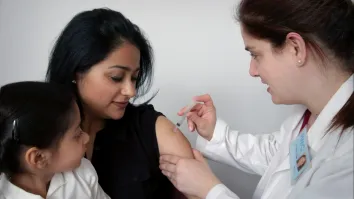
MOH adds new drug to Singapore cancer drug list
The anti-cancer drug zanubrutinib is made by BeiGene.
The Ministry of Health added BeiGene's zanubrutinib to its list of cancer drugs list (CDL), which is a roster of clinically proven and more cost-effective cancer treatments.
Drugs on the CDL are reimbursable for Singapore citizens and Permanent Residents (PRs) under Singapore’s MediShield Life (MSHL), MediSave (MSV) and Integrated Shield Plans (IPs).
Zanubrutinib will also be covered for qualified patients under the Medication Assistance Fund (MAF). The MAF scheme provides subsidies for high-cost drugs that are clinically proven and cost-effective for specific indications,
at public healthcare institutions to ensure patients have access to more affordable care.
“We are very pleased to have our BTKi included on the Cancer Drug List (CDL) for multiple indications. Having zanubrutinib placed on the CDL for six different indications is a demonstration of BeiGene’s commitment to creating impactful medicines and making them as affordable and accessible to as many cancer patients around the world as we can,” said Michelle Tan, BeiGene’s General Manager for Southeast Asia.
Singapore’s Health Science Authority (HSA) had previously approved zanubrutinib for six indications:
1. Treatment of patients with mantle cell lymphoma (MCL) who have received at least one prior therapy.
2. Monotherapy for patients with Waldenstrom’s macroglobulinemia who have received at least one prior therapy.
3. Monotherapy for previously untreated Waldenstrom’s macroglobulinemia in patients who are unsuitable for chemo-immunotherapy.
4. Monotherapy for relapsed or refractory marginal zone lymphoma (MZL) in patients who have received at least one prior anti-CD20-based regimen.
5. Monotherapy for chronic lymphocytic leukaemia (CLL) or small lymphocytic lymphoma (SLL) in patients who have received at least one prior therapy.
6. Monotherapy for previously untreated chronic lymphocytic leukaemia (CLL) or small lymphocytic lymphoma (SLL) in patients who are unsuitable for fludarabine-based therapy.



















 Advertise
Advertise






